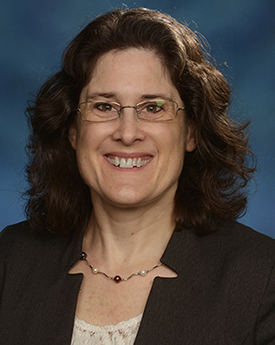Letter from the Neurology Residency Program Directors

The mission of the residency program of the Department of Neurology of the University of Maryland is to deliver superior health care to the Baltimore community, and to patients from diverse socioeconomic backgrounds that are transferred to our center from throughout the state and the nation, and to train the next generation of neurologists so that they complete residency with the skills necessary to be successful in the broad range of careers available in neurology.
We have more than 50 faculty with expertise across the spectrum of neurology subspecialties, who are devoted teachers, clinicians, and researchers. Together with colleagues in neurosurgery, neuroradiology, psychiatry, and many other disciplines, they represent a wide breadth of expertise available to the neurology resident.
Our program is growing (with recent increase in class size to 7 per year), which allows residents ample opportunity for subspecialty rotations to take advantage of all the educational opportunities available to them.
The University of Maryland Medical Center is a large tertiary care center, with a broad network of referring community hospitals throughout the region. Consequently, on the inpatient services neurology residents have exposure to common neurology diagnoses, as well as patients with more complex or rare conditions who are transferred for a higher level of care. Among the many services offered are an active Neuroscience ICU, Epilepsy Monitoring Unit, and state of the art Neuroradiology suites for interventional management of acute stroke.
Similarly, in the outpatient center, patients come for treatment of a broad range of disorders, including many patients referred from community neurologists to our specialists for second opinions. Our residents also receive training at the Baltimore VA Medical Center, which is connected to the University hospital by a foot bridge. Residents also rotate at the Maryland Rehabilitation and Orthopedics institute, a specialized rehabilitation center with dedicated stroke, spinal cord and neurotrauma units. With all these resources available, our neurology residents receive a broad inpatient and outpatient clinical neurology experience.
There are many didactic sessions, including grand rounds, Chairman's rounds, case conferences, morning report, specialty conferences, and a curriculum of mid-day didactic sessions throughout the year (with lunch provided). Faculty are involved in a wide array of research activities, from basic science laboratory programs to clinical trials. There are abundant opportunities for residents to pursue research questions, either of their own design or in conjunction with ongoing projects.
Our program is designed to provide increasing responsibility and independence as trainees become more experienced, while always maintaining support from more senior residents, fellows, and attending physicians. By the end of the residency, our trainees are well prepared to succeed in any of the many career options available to neurologists today. Our residents have been very successful in going on to fellowships and careers in many different fields.
The department values diversity and provides a collegial and inclusive environment in which to train. Our residents are highly valued as core members of the neurology department and partners in their education. We are constantly examining our program and working with the residents to make adjustments to provide the best possible training. Our flexibility has been tested in recent years with the COVID-19 pandemic. I am very proud of our response and ability to keep our trainees safe while continuing to provide excellent patient care and education. I am confident that we will continue to provide excellent neurology training going forward.
We invite you to learn more about our Department and the many opportunities that our residency program provides.
For more information, please contact our Education Office at NeuroEducation@som.umaryland.edu.
Carolyn A. Cronin, MD, PhD
Associate Professor of Neurology
Neurology Residency Program Director
Haroon Ahmad, MD
Assistant Professor of Neurology
Neurology Residency Associate Program Director
Sarah Fredrich, MD
Assistant Professor of Neurology
Neurology Residency Associate Program Director


